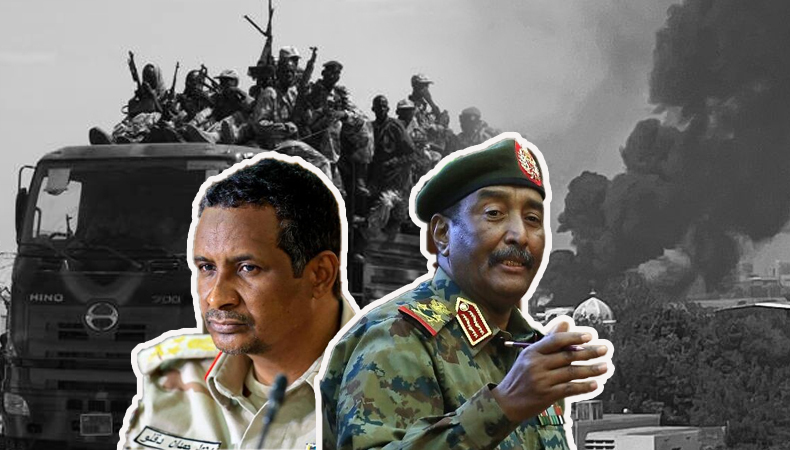Why Is Sudan Fighting? Why Is Sudan At The Brink Of Civil War Again?

Sudan is experiencing a civil war crisis that started with infighting between two rival groups: the Sudanese army and a paramilitary group known as the Rapid Support Forces (RSF).
The political transition that followed Omar al-Bashir’s fall from power in 2019, which was supposed to result in elections by the end of 2023, has been interrupted by a coup in 2021.
Since then, Sudan has been ruled by the army, with General Abdel-Fattah Burhan as the de facto ruler. The RSF, led by General Mohammed Hamdan Dagalo, worked alongside the army to keep the military in power.
Read | Sudan Crisis: Understanding the power struggle at the heart of the violence
The recent fighting started when members of the RSF started deploying around the country and in Khartoum without the army’s permission.
However, tensions have been brewing in Sudan for a while, with concern over the RSF seeking to control more of the country’s economic assets, notably its gold mines.
The violence has left at least 180 people dead and threatens the stability of the nation and its prospects for a transition to democratic rule.
The situation can be interpreted as a battle between two men who are desperate not to be ejected from the corridors of power by means of a transition to an elected government.
The violence fits Sudan’s troubled past as the country has had more coups than any other African nation since gaining independence from the U.K. in 1956.
Why are North Sudan & South Sudan fighting?
The Sudan fights are not between North Sudan & South Sudan actually. The war crisis originated from infighting between two rival groups, the Sudanese army and a paramilitary group known as the RSF.
The fight stems from a power struggle over the incorporation of RSF paramilitaries into the army and control of economic assets such as gold mines.
The war resulted in 180 people dead and many wounded in Sudan. Sudan’s stability and democratic transition prospects and people’s lives are at huge risk.




